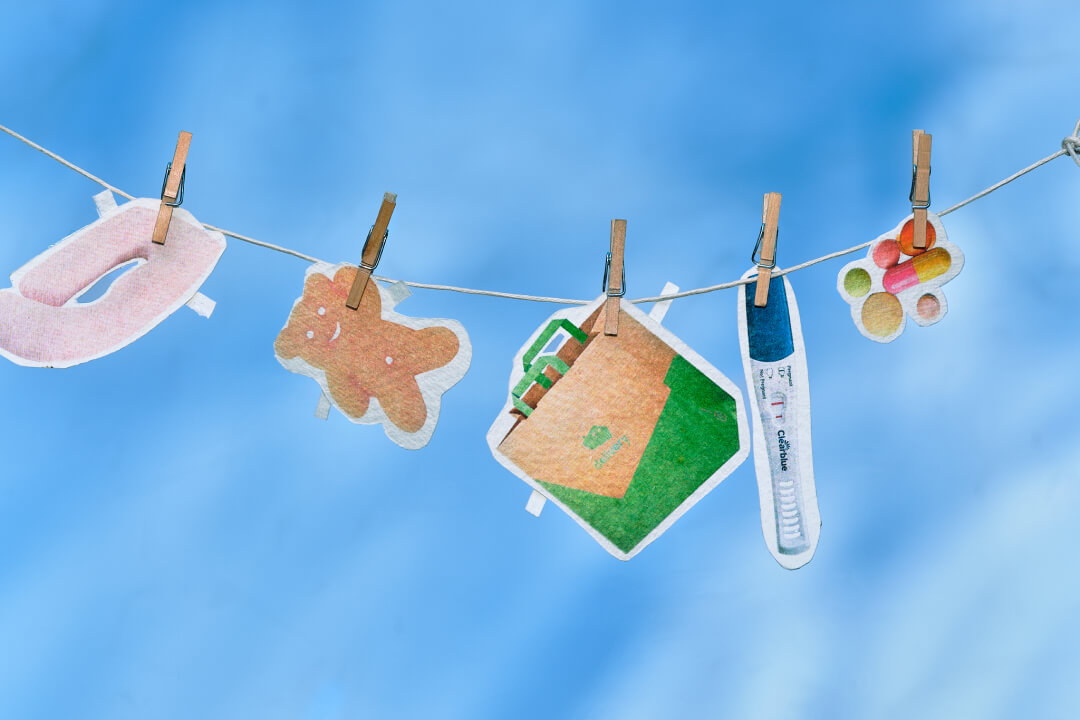
Family
What do parents buy to fill their empty nest?
By Charlotte Lorimer
Family

For my mum, the going rate was always £10 an hour, no matter the agreed chore. It’s what she paid me for doing the ironing when I was 11 or 12 – and for doing a deep clean of the house when I was 25. Of course, every family has their own way of doing things.
Starling customer Soham gives his kids 5p or 10p for each item they iron, depending on how tricky it is to get the creases out. While another customer, Lucy, has an 11-year-old son who, clearly much savvier than me, has been negotiating his rate and undercutting the cleaner.
When we asked our audience on social media which chore pays best in their family, emptying the bins and changing the sheets were among the most mentioned. But the task that easily had the biggest price tag was tidying away the Christmas decorations; one parent told us that the “children took full advantage [of how much they hate it] and negotiated a £50 fee – plus entertainment and catering expenses.”
Other chores on the list included cleaning muddy boots after a hike, making the first morning brew (“It’s worth the money - an un-caffeinated mum is not a fun mum!”), and matching socks into pairs.
Cleaning the car also came up a lot, although not all parents trust their children with this one. “Last time, I had to ask him to do it all again!” says Starling customer Nike, who has a 17-year-old son. There are other things she trusts him with, though: “If he cleans up the dog poop in the yard, he gets an extra £5. Or if I can’t walk the dog and he takes him, I give him something extra. He also negotiates an extra £2 for cleaning the stairs and if he helps his uncle with DIY, he’ll usually get a tenner.”
The going rate for parents who do trust their kids to clean the car seems to range from £5 to £20. For Soham, the amount he gives his 12-year-old depends on the results. “So far, it’s been pretty good! So we’ve given him between £5 and £10 – for doing both the inside and the outside.”
Yinka pays her 17-year-old £20. “It’s more expensive than taking it to a professional but it helps him out and he does a good job.” For any extra chore her children do, she always sets the price: “I don’t give them the opportunity to negotiate!”
Sarah, who has six children, is the same, unsurprisingly: “I never negotiate prices on extra chores or suggest they do something on top of what’s expected. If I did, I’d have nothing left!”
If one of her kids cleans the car, she gives them £15 or £20, depending on the age of the child (they range from 10 to 28), how well they’ve done it – and how generous she’s feeling.
From my chats with parents, it seems that most don’t directly link weekly or monthly pocket money with chores – but are open to giving something extra if they take on certain tasks.
Starling customer Kevin pays his two kids their pocket money on his own payday. “It’s payday for all the family,” he says. “The 15-year-old gets £15 a month, the 11-year-old gets £10 a month, and they can earn an extra tenner for cleaning and putting stuff away.
“It’s always £10 for whatever extras, no matter how long it takes. Although nowadays our son gets a choice: pocket money or a haircut. He wants to look like the older boys at school, which means he wants it cut every two weeks!”
Sarah, whose six kids all live at home, gives each of them their weekly allowance on a Monday (“never a Friday – they’d spend it all over the weekend!”) and expects them to regularly help out around the house. “Everyone was born on a different day of the week. So for each person, that day of the week is the day they’re responsible for keeping the communal areas clean.
“I don’t pay them for these chores – I want them to understand that it’s all of our responsibility to look after the house. But if they do something they wouldn’t usually do, like clean the microwave or clean out the oven, I give them something extra. We’re hardly ever at that place though – it’s usually, ’You’ve missed a spot.’”
Of course, some parents, like Lucy, do link pocket money and chores. “We recently got a cleaner but weren’t happy with the standard, so we’ve gone back to doing it ourselves – and my son spotted an opportunity,” she says.
“He’s currently negotiating whether he should get an hourly rate or a set amount per week, and he’s undercutting how much the cleaner was charging!” Lucy used to pay him £5 a week for being in charge of loading and emptying the dishwasher. “But the routine slipped, like so many things you set up with kids.”
To ‘pay’ him, she transfers money onto his Kite card, the Starling debit card for kids. “I love adding notes and photos to transfers. And he loves checking his balance.
A number of people told us that they turn chores into games, which was my mum’s favourite trick. When another family came to stay, she turned washing two cars, prepping Christmas dinner and cleaning out two guinea pig hutches into highly competitive boys versus girls challenges.
We loved every task she set and eagerly awaited our scores (we were judged on both speed and quality). It was only years later, after noticing all the housework she’d got us to do, that we realised she was the real winner…
The article above includes general information and should not be taken as financial advice. If you have questions about your specific circumstances, please speak to an independent financial advisor.

Family
By Charlotte Lorimer

How Much Does It Cost?
By Anonymous contributor

For What It’s Worth
By Anonymous contributor

For What It’s Worth
By Anonymous contributor